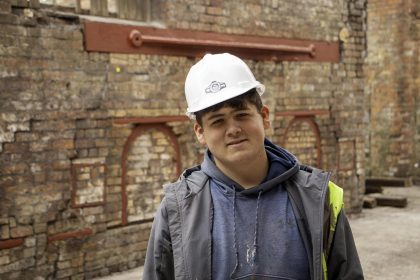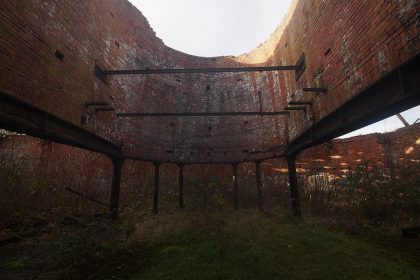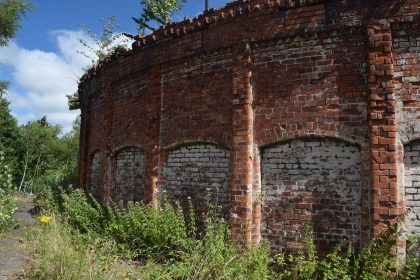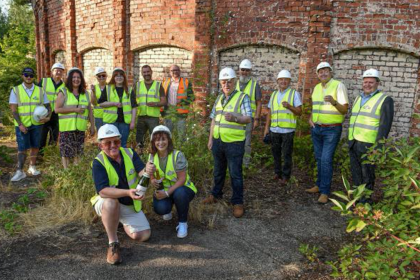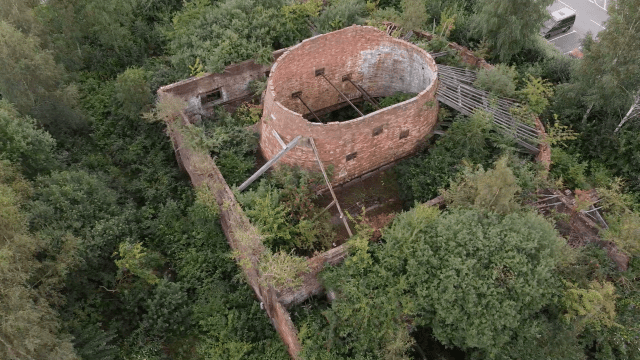
THE project to regenerate a historic glass bottle workshop has taken another significant step forward with the announcement of a contractor.
The Cannington Shaw Preservation Trust CIC has confirmed the appointment of Clan Contracting Limited as the principal contractor for phase one of the works to stabilise and repair the No: 7 Bottle Shop – Cannington Shaw.
The Star previously reported after approval was granted for the first phase of the refurbishment works.
The site is near the Steve Prescott Bridge on land between the Tesco supermarket and St Helens town centre, and a short distance from the new £54m Glass Futures innovation centre. It is listed as Priority A on Historic England’s ‘Heritage At Risk’ Register.
Working with the Cannington Shaw Preservation Trust as client and site custodian, MGMA developed proposals to secure the building shell and provide emergency conservation works, alongside new facilities for the Trust including community, education, and event spaces together with a feature viewing tower.
The bottle shop has been vacant and deteriorating since the former United Glass site was cleared in the early 1980s. Scheduled Monument consent for the phase one works was granted by Historic England in August 2023, clearing the way for the planning application to be brought forward.
Following the appointment of Clan Contracting, John F Tabern, project director said:
“This appointment follows a lengthy and exhaustive process of procurement and tendering, but it was clear from the quality of Clan’s submission that they were the right fit for this initial phase of works.
“We have been impressed with the swiftness of their mobilisation, setting up at site less than a week after appointment and their willingness to engage with the Trust in all aspects of the project.”
This initial phase of works will see the Scheduled Ancient Monument and Grade 2 listed building, identified by Historic England, as ‘”the most intact example of a late 19th Century Bottle Shop anywhere in the world” receive stabilisation work and repairs to protect and consolidate the structure.
This has been made possible via an award of £1.3million from the Towns Fund, following the successful submission of a business case.
Caroline Platt, project support, added:
“The money awarded from the Towns Fund has been the most important development in the efforts of the Trust to save the No: 7 Bottle Shop, enabling work to commence that will in a few years see the building back in use as a part of the community and tourist offer in St Helens.”
Clan Contracting Limited, based in Widnes, have experience in the world of heritage projects.
Damien Meyers, managing director of Clan Contracting Limited, said:
“Our team will be focusing on repairing and stabilising the brickwork, preserving what remains of one of the world’s first successful regenerative furnaces. This will help ensure the structure reaches a “Managed Ruin” status, allowing the public to safely interact with this vital piece of local history and ensuring it remains an iconic landmark for generations to come.”
Clan have already mobilised on site and are preparing to commence full scale operations that will see the works completed in the next six to seven months.
Meanwhile, Cllr Richard McCauley, St Helens Council cabinet member for inclusive growth and regeneration, added:
“Seeing the project come to life is a really exciting time and it’s great to see that the Towns Fund is supporting projects like this, which recognise our borough’s heavily intertwined heritage in the glass making industry and protect this historically important site for future generations, with the trust’s bold vision to bring it back in to use for our communities to use once again.”
Commenting further on the projects future, Mr Tabern said:
“We at the Trust now have the task of finding the next phase of funding to carry us into the development work required to realise the vision of returning this historic heritage asset to its former glory and a productive and useful future within the town. It will not be easy, but we are determined to ensure the success of this project and will be working hard to achieve this.”
This article was originally published in the St Helens Star

